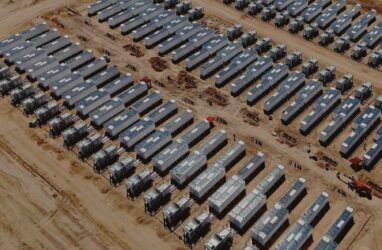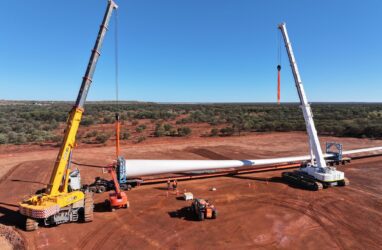Feed aggregator
Mass planting of marsh violets key to saving rare UK butterfly, says National Trust
Trust aims to boost small pearl-bordered fritillary colonies in Shropshire Hills by planting 20,000 violets this year for their caterpillars
A mass planting of marsh violets across England’s Shropshire Hills is to take place to try to prevent further decline of the small pearl-bordered fritillary or Boloria selene, a rare UK butterfly.
The small pearl-bordered fritillary’s distribution across the UK has plunged 71% since the mid 1970s and the species is now listed as vulnerable, according to the 2022 state of UK butterflies report.
Continue reading...Fixation on UK nuclear power may not help to solve climate crisis
Waste and cost among drawbacks, as researchers say renewables could power UK entirely
In the battle to prevent the climate overheating, wind and solar are making impressive inroads into the once dominant market share of coal. Even investors in gas plants are increasingly seen as taking a gamble.
With researchers at Oxford and elsewhere agreeing that the UK could easily become entirely powered by wind and solar – with no fossil fuels required – it seems an anomaly that nuclear power is still getting the lion’s share of taxpayer subsidies to keep the ailing industry alive.
Continue reading...Energy Insiders Podcast: Hydrogen hopeful’s big funding win
The post Energy Insiders Podcast: Hydrogen hopeful’s big funding win appeared first on RenewEconomy.
Sky-high vanity: constructing the world’s tallest buildings creates high emissions
Concrete slab awaits 444 Tesla Megapacks at Melbourne’s giant battery project
The post Concrete slab awaits 444 Tesla Megapacks at Melbourne’s giant battery project appeared first on RenewEconomy.
Methane slashing rice tech startup wins Series A funding
‘I am starting to panic about my child’s future’: climate scientists wary of starting families
A fifth of female climate scientists who responded to Guardian survey said they had opted to have no or fewer children
“I had the hormonal urges,” said Prof Camille Parmesan, a leading climate scientist based in France. “Oh my gosh, it was very strong. But it was: ‘Do I really want to bring a child into this world that we’re creating?’ Even 30 years ago, it was very clear the world was going to hell in a handbasket. I’m 62 now and I’m actually really glad I did not have children.”
Parmesan is not alone. An exclusive Guardian survey has found that almost a fifth of the female climate experts who responded have chosen to have no children, or fewer children, due to the environmental crises afflicting the world.
Continue reading...Australia Market Roundup: April ACCU trading volumes up year-on-year, issuance down, as market awaits method news
Big batteries smash records in biggest oil and gas state in US
The post Big batteries smash records in biggest oil and gas state in US appeared first on RenewEconomy.
Victoria and Tasmania get allocations as details released for Australia’s biggest renewable tender
The post Victoria and Tasmania get allocations as details released for Australia’s biggest renewable tender appeared first on RenewEconomy.
Australian home battery maker out of administration and “here to stay” under new owners
The post Australian home battery maker out of administration and “here to stay” under new owners appeared first on RenewEconomy.
Fight to save African penguin goes to law
Contested US CO2 pipeline project signs agreement to market CCS offsets
WCI Markets: CCAs edge down as Q2 auction nears, Washington’s scheme remains muted
Microsoft finalises agreement for 3 Mt of removals credits from Brazilian reforestation
UK heat pump target looks set for boost from voluntary market
Fossil fuel generation tumbles to less than a quarter of EU electricity demand
Mosquitoes found all across warming Scotland
Feral horses in Australia’s high country are damaging peatlands, decreasing carbon stores
The Guardian view on Britain’s dirty waterways: a failure of industry and regulation | Editorial
Fresh warnings about polluted rivers from the environment watchdog are shocking but not surprising
A steady stream of stories about the shockingly poor state of Britain’s waterways has turned into a flood. In March, news that competitors in the Boat Race had been warned to stay out of the Thames due to sewage pollution travelled round the world. That the water industry is dysfunctional, and for years has enriched shareholders and executives at the expense of customers, is broadly recognised by the public. Anglers, surfers and swimmers have joined with environmentalists and the former pop star Feargal Sharkey to demand improvements. Polling last year suggested more than half of voters would take the government’s handling of sewage into account when deciding how to vote.
The latest warnings about the situation from Dame Glenys Stacey, the environment watchdog, are thus not surprising. But her data and analysis still have the power to shock. Under the worst-case assessment from the Office for Environmental Protection, just 21% of England’s rivers and other bodies of water will be in a good ecological state by the target date of 2027 – in contravention of the Environment Act.
Continue reading...







